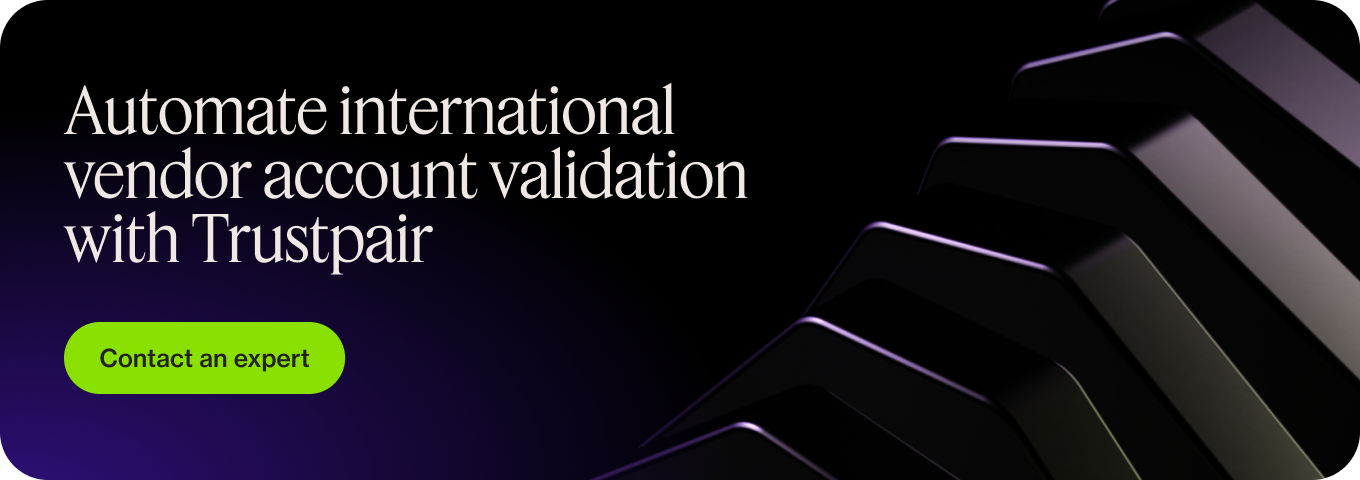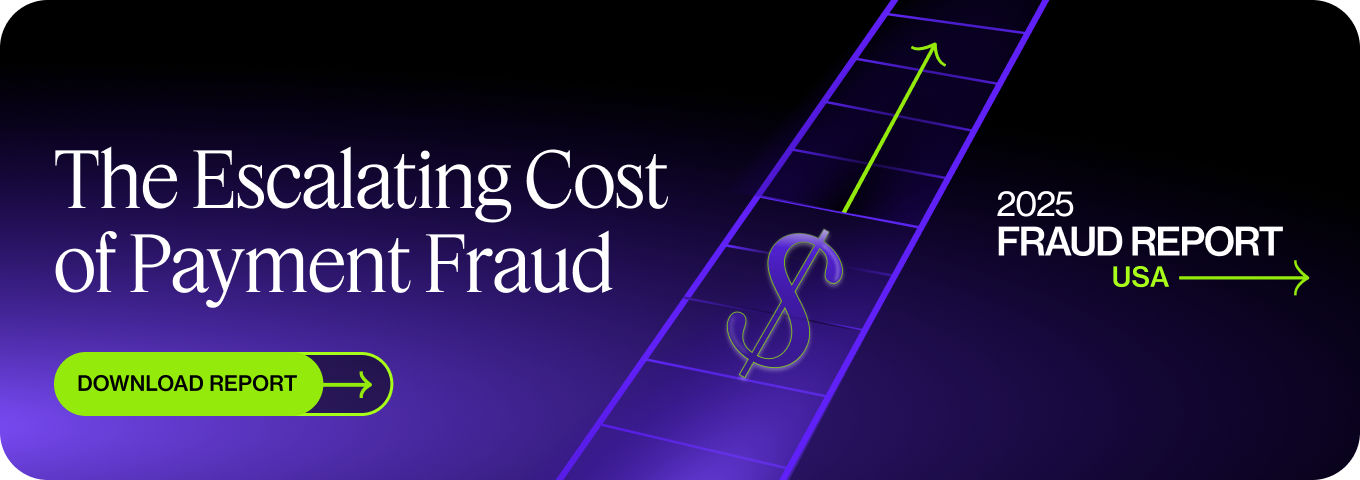The US Justice Department indicted Chinese company Huawei in 2019 for lying about their ownership of Iranian company Skycom. Their employees allegedly hid who Skycom’s ultimate beneficial owner was, implicating their US partners. Knowing the difference between a beneficial owner and an ultimate beneficial owner could have protected them as it will protect you — so keep reading!
Identifying both ensures you aren’t funding illegal activities. Trustpair adds a layer of security and compliance to payments by continuously monitoring your third-party data. Request a demo to learn more!
What is a beneficial owner?
A Beneficial Owner (BO) is the term used to describe an individual who benefits from a company’s gain. In other words, this individual has a vested interest in an organization and is positively impacted by its successes.
Although they’re the same in the majority of cases, a beneficial owner is different from a legal owner. For example, a legal owner can be a guardian or a trust representing another individual who is the beneficial owner.
Beneficial owners have significant sway in a company’s decisions. They usually hold shares or voting rights — with all the privileges that come with them.
A typical example of a beneficial owner is a corporate shareholder. The main difference between a beneficial owner and an ultimate beneficial owner is that there can be more than one BO.
What is an Ultimate Beneficial Owner?
Definition of Ultimate Beneficial Owner
The Ultimate Beneficial Owner (UBO) is the individual who ultimately benefits the most from the company’s gains. For example, the UBO will be the one who gets the most profits out of a successful deal.
The difference between the beneficial owner and the ultimate beneficial owner is that there is only one of the latter. The UBO is the one beneficial owner who benefits more than the others.
In the case of being represented by a trust, a guardian, or another company, the UBO is the person whom the trust represents.
How to identify the ultimate beneficial owner?
The ultimate beneficial owner percentage varies from country to country:
- In the EU, the fourth anti-money laundering aml directive states that anyone with more than 25% of shares gets the status of UBO.
- In the US, UBOs need to control over 50% of the shares.
The EU’s definition of UBO is broader than the US one. This means there technically could be more than one ultimate beneficial owner. Corporations have to do more research into their UBO and find who the “ultimate”, ultimate beneficial owner is.
Overall, the UBO is the person who controls the company, the one who has the most weight when it comes to making strategic decisions. In the context of transactions between financial institutions, it describes the person who will end up with the money.
A UBO can be:
- A shareholder,
- Someone with Power of Attorney,
- A guardian for minors,
- Or anyone with direct/indirect control, like a spouse or a family member.
Some companies make identifying their UBOs hard for a variety of reasons (some more honest than others).
They use trust and other legal entities like shell companies to hide their identity from the public. It means they might not have anything to do with the organization officially, but they’re the ones who ultimately control it.
Why are they both important?
Protect yourself from third-party risks
While there is a difference between a beneficial owner and an ultimate beneficial owner, it’s important to know both. When dealing with suppliers (or business partners), you need to know who will benefit from your business.
Keeping an eye on your beneficial owners as well as your ultimate beneficial owner means you’ll be able to react quicker in case of changes. It’s quite common for a BO to buy more shares and become the new UBO of a company — which will directly impact you.
Knowing who your partner’s beneficial owners are means you have the necessary information to make informed decisions regarding your company.
For example, learning your new vendor’s beneficial owner is part of the Politically Exposed Persons (PEP) list means they’re more likely to be involved in bribery and corruption — something you need to know as:
- It could impact your company’s reputation,
- Your shareholders might not agree with that,
- It might not comply with your national or regional regulations,
- There is a high risk of fraud,
All of these need to be factored into your risk management strategy, which is good practice and mandatory under the SOX Law.
It’s also part of good due diligence (which prevents fraud), but it’s also essential to remain compliant with international laws.
Stay compliant with Anti Money Laundering regulations
Companies have to carry out UBO identification as part of the anti-money laundering (AML) regulations. Their main goal is to prevent money laundering and financial crimes like terrorist financing and the funding of illegal entities or activities.
In the US, FinCEN (Financial Crimes Enforcement Network) is the entity responsible for the ultimate beneficial ownership regulations, which covers all US companies and organizations that trade or operate in the USA.
Identifying UBO is also a key element of the Know Your Customer (KYC) process.
It’s every business’s responsibility to ensure that their partners and vendors aren’t part of any sanctioned list, such as the OFAC or the United Nations list of sanctioned countries.
Doing so exposes you to fines but also to fraud!
Fraud protection
Identifying your BOs and UBOs is essential for your business because it also protects you against fraud. Ensuring you know who you are sending money to is important for the above reasons but also to ensure you’re not being tricked.
Fraud with your suppliers can look like this:
- Fake vendor fraud, where fraudsters pretend to be one of your suppliers and get paid for goods and services never rendered.
- Invoice fraud, where scammers impersonate your legitimate vendors and get paid in their stead.
- CEO fraud, where criminals pretend to be a high-level executive of your organization to get you to send a transfer to an unknown account (for example saying it’s for “an urgent and strategic deal”).
And that’s without getting into ill-intentioned people who hide behind shell companies, and trick you into money laundering or corporate fraud.
That’s why you should monitor your vendors (and partners at large) on an ongoing basis. It’s not enough to do so when onboarding them, as their BO and UBO could change or end up on sanctioned lists.
Trustpair helps you in your due diligence process by constantly auditing the credentials of your third parties. We check your vendors’ information against international databases to ensure:
- They are who they say they are,
- They’re not on any sanctioned list.
Any suspicious activity is flagged and transactions won’t be sent without your approval. That means you’re protected against the risk of fraud, but also ensures your compliance with the diverse AML laws.
To learn more about fraud risks, download our latest fraud study!
Key Takeaways:
The difference between the beneficial owner and the ultimate beneficial owner is that there is usually only one UBO, who is the person who ultimately gains the most from the transaction.
It’s important to know who your BOs and UBOs are to be compliant with AML regulations, and to be protected against fraud. It’s also an essential part of your risk assessment strategy.






